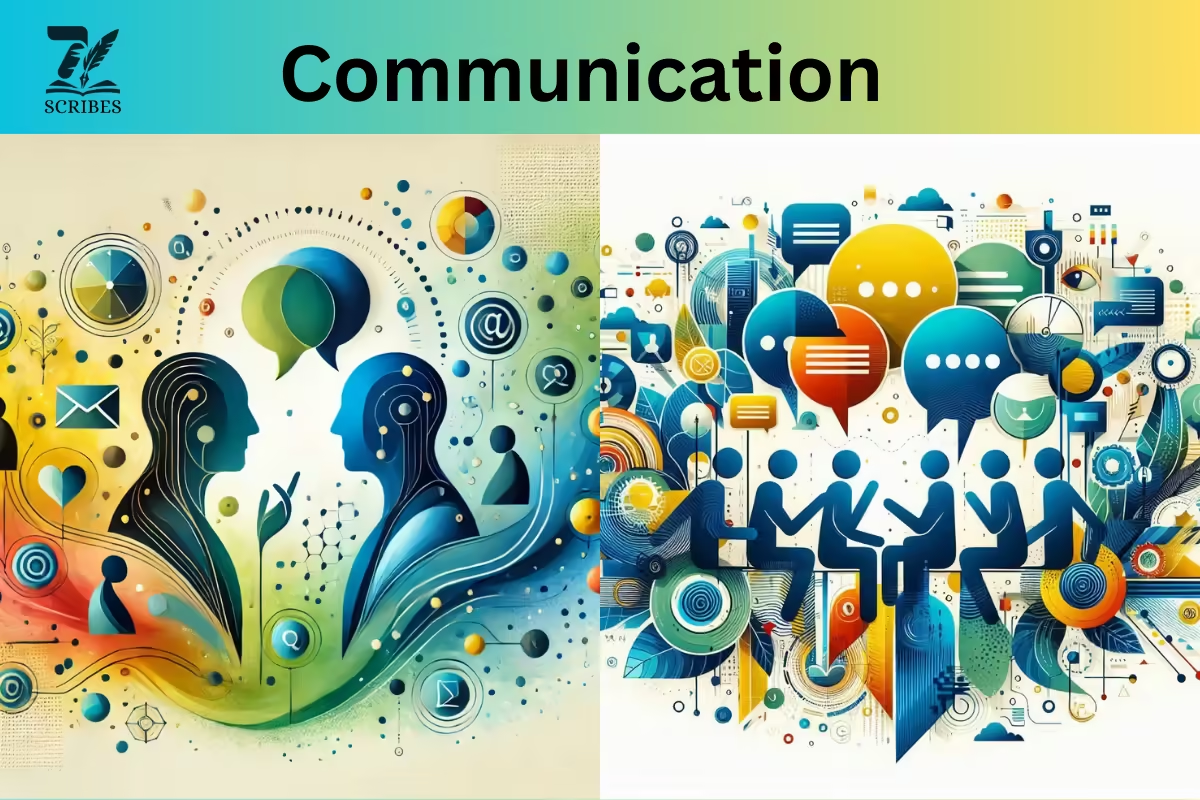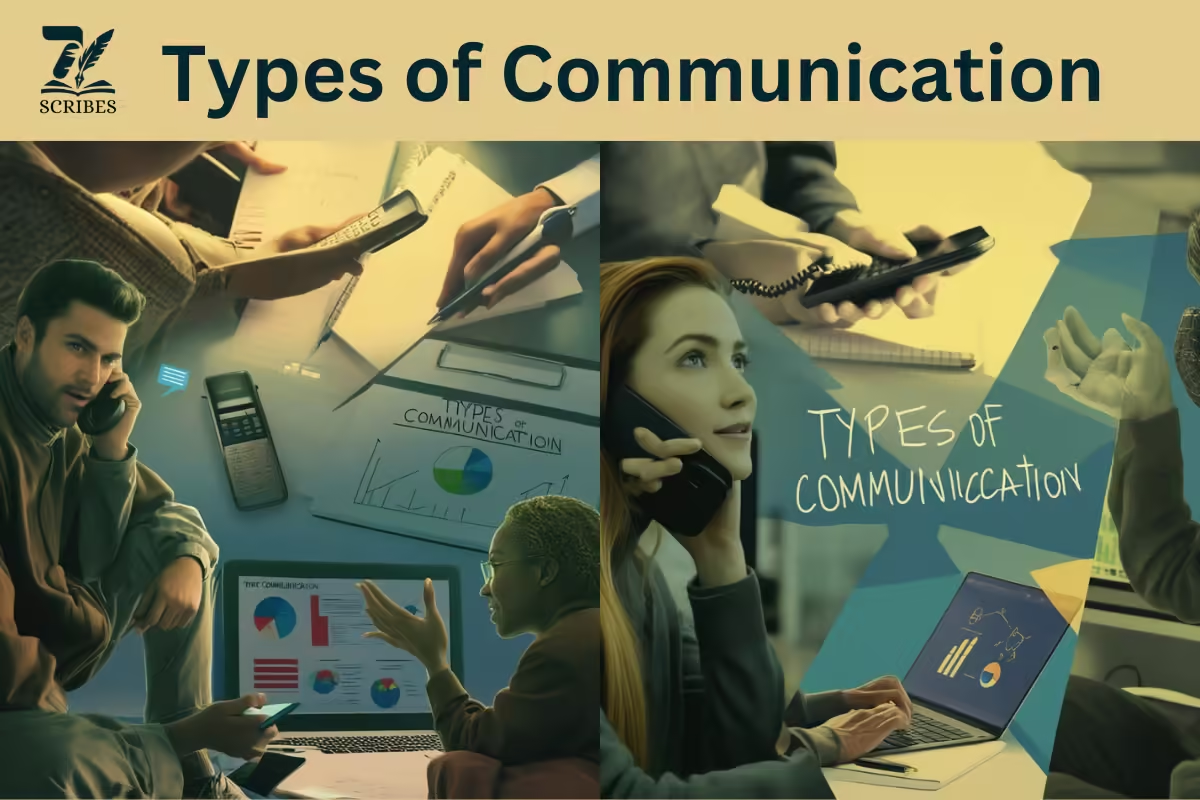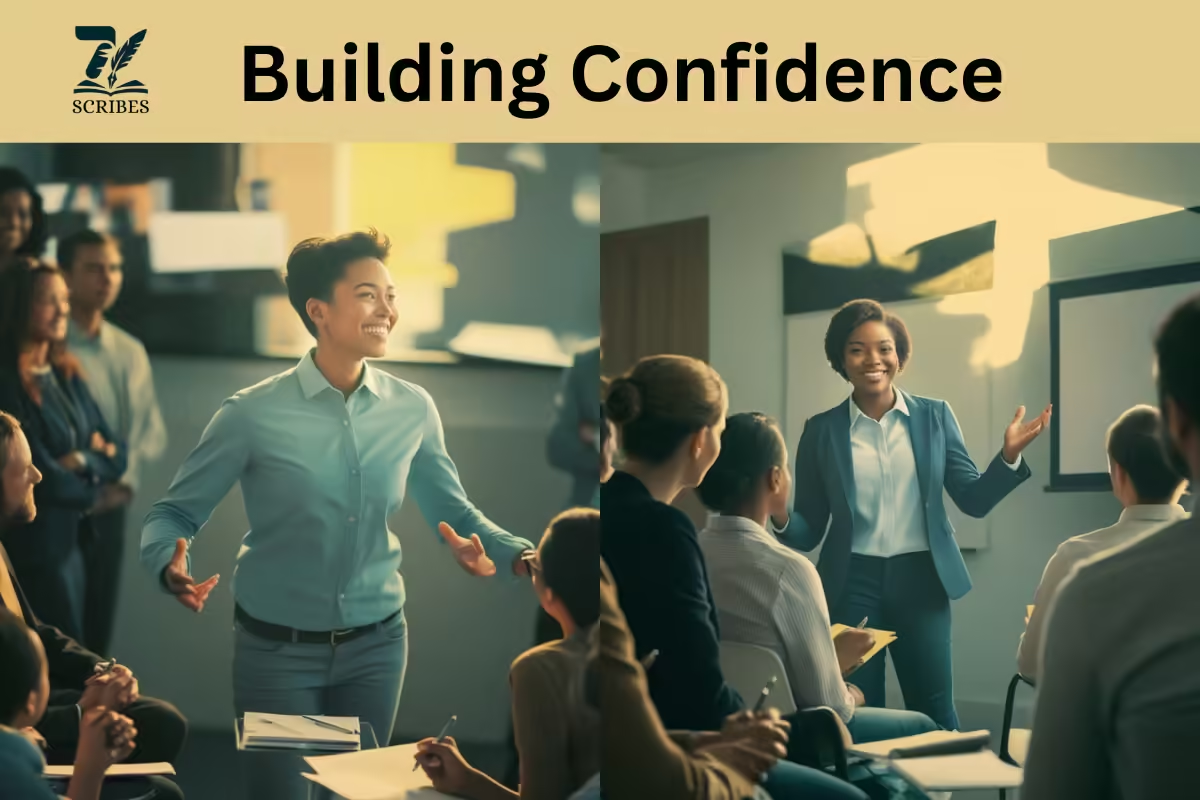“Have you ever found yourself misunderstood in a conversation?”
It is a disheartening experience. You think you are being clear, but somehow your message gets lost. It leaves confusion for both communicators. Miscommunication happens to anyone whether you are speaking with your friends, colleagues, or even family members.
Effective communication is not just about speaking or writing. It ensures that the receiver gets the message as intended. Many of the challenges we face in both personal and professional life arise due to miscommunication. The good news is that communication is a skill that can be learned and improved.
In this blog, we will explore the different types of communication. We will also discuss the importance of communication. Finally, we will share some practical tips to improve your communication skills.
What is communication?
The word communication is derived from the Latin word “Communis” which means common. In simple words, communication is the process of exchanging information, emotions, and ideas between two or more people.

Types of Communication:
There are many types of communication. Some important or main types are given below.
Verbal Communication:
Oral Communication:
In verbal communication, the sender uses words to convey the message. It may be either face-to-face or through other mediums like telephone calls, chats, etc. It allows immediate feedback.
Written Communication
It involves the written word instead of speaking. It may be emails, letters, memos, and texts.

Non-verbal communication:
Body language:
Body language includes gestures, postures, facial expressions, and eye contact. All these are nonverbal cues. Nonverbal cues can convey emotions and attitudes that words may not be expressed.
Paralinguistic
It references vocal elements that accompany speech such as tone, pitch, volume, and pace. These can change the meaning of spoken words.
Haptics:
Haptics is also a type of nonverbal communication. It involves touch as a form of communication, such as hugs, handshakes, or pats on the back.
Proxemics:
It is meaning that we give the surrounding us. It is also included in nonverbal cues, which convey many messages about the speaker.
Visual Communication:
Visual Communication involves the use of graphics such as images, charts, graphs, and videos. It is helpful to convey a clear message. Moreover, it increases the engagement of the audience.
Interpersonal communication:
It involves the communication between two or more people. It may be In the form of verbal or nonverbal.
Intrapersonal Communication:
It refers to the communication that takes place within an individual. It involves your internal dialogue, thoughts, feelings, and self-reflection. This type of communication is important for self-awareness, decision-making, and problem-solving.
Importance of Effective Communication:
Effective Communication is important for everyone. Whether you are a student, professional, or businessman, without effective communication, you cannot achieve personal, professional, or academic success. Here are some key reasons why communication is important.
Building Relationships
All types of relationships are based on communication. This is how people articulate themselves, share their ideas, and build trust with each other. Lack of communication can put a strain on relationships and confuse them.

Enabling Clarity
People’s efforts in establishing clear communication enable them to know what the other is trying to express, their interests, and concerns. This is important to avoid confusion and useless conflicts. A common reason for frustration and ineffective efforts is, unfortunately, misunderstanding – the communication was vague or absent altogether.
Improving Teamwork
Collaboration in both educational institutions and industry enterprises is possible thanks to communication. Such teams can capture the best of each of their members, cooperate, and find solutions faster and more effectively. It helps in building teams and ensuring effective coordination of everybody towards a common goal.
Easing Resolution of Issues
To resolve issues, good communication is important while recognizing them as well. As long as there is communication, whether internally or externally, people can raise questions, develop ideas, and clear up any issues.
Boosting Confidence
Individuals who excel in expressing their points of view and ideas through speech appear more self-assured. They have great communication skills that that assist them in articulating their feelings, having meaningful discussions, or stating their feelings which enhances their self-confidence.

Improving Productivity
In all areas including business, there is less communication breakdown which translates to better performance. Providing the team with adequate instructions, communicating with team members, and giving appropriate feedback all help the teams maintain focus and work systematically towards achieving their goals.
Tips for Improving Communication Skills
Active Listening
Focus on the speaker: As soon as someone starts talking, all of your attention should be on him. Do not pick up the phone or start devising how you would respond, even if it is their turn to shut up for a while.
Respond thoughtfully: Empathy can be expressed through acknowledgment or by gesturing a nod instead of verbally repeating what other people have said. Rephrase what your colleague has delivered to you.
Avoid interrupting: Refrain from disclosing your views or opinions unless the other person has finished speaking.
Improving Nonverbal Communication
Make eye contact: This shows that you are involved and focused.
Beware of body posture: Stand or sit tall and do not put your arms across your chest, which communicates being closed off.
Gestures are valuable: Your hands and your face can help portray your arguments, but do not forget that the same body language does not mean the same thing in all cultures.
Copy the other person: Sometimes, copying someone’s postures or gestures to a limited degree helps in creating a bond with them.
Broaden Your Vocabulary and Precision
Do not use meaningless words: Instead, be concise and understandable. Avoid using technical terms and complex words when they are not required. The idea is to make your communication simple.
Learn new words: Make it a habit to read books and they will constantly introduce you to new words, after which you should use this new vocabulary while speaking to polish your expression skills.
Strategically plan what you want to say: Formulate your words for a moment before you speak to avoid going off on a tangent and articulate your point clearly without rambling.
Have Empathy
Assess what the other person has to say: Try to understand how they feel and what they think by placing yourself in their position.
Show emotion: Show that you acknowledge their feelings if emotional content is part of the discussion.
Give time: When it is a sensitive discussion, allow the other person to take time and speak their heart out.
Conclusion:
In conclusion, effective communication is a crucial skill that significantly impacts our personal and professional lives. By understanding the various types of communication we can make our communication more successful and minimize misunderstandings.
Read More:
SUPARCO Space Mission of Pakistan
Artificial Intelligence and Education